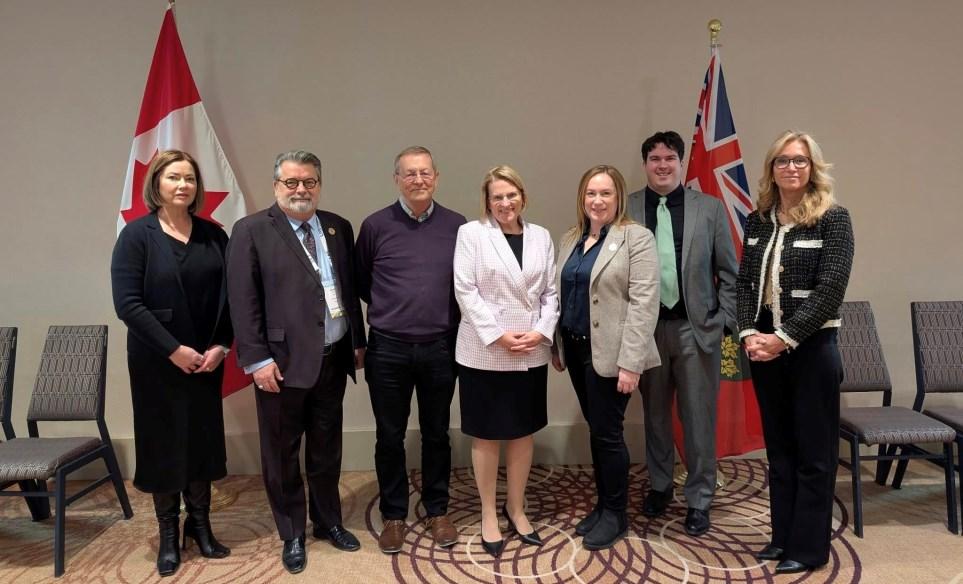
1 minute read
Elected Officials, County staff delegate with provincial ministries during Rural Ontario Municipal Association Conference
Written and Submitted by Councillor Lukas Oakley
This week, thousands of municipal elected officials and staff from rural municipalities across Ontario gathered at the Sheraton Centre Hotel in Toronto for ROMA (Rural Ontario Municipal Association) Conference 2025. The conference is a time for delegating with provincial ministries and members of the opposition parties of Ontario, professional development through excellent educational sessions on relevant topics such as housing and homelessness (tailored to a rural lens to boot), and networking and collaborating with our peers from across the province.
Advertisement
For the County of Brant, ROMA is arguably our most important conference of the year, as whilst we can have a hard time getting all our delegations when competing with Hamilton, Toronto, or London for facetime with ministers, we are a bit bigger of a fish in the “Rural Ontario” pool. This year’s conference we applied for seven delegations and received five of them (with us able to attend four due to overlapping time slots for two of our delegations).
On Monday, we met with Minister of Indigenous Affairs and First Nations Economic Reconciliation (and former Paris resident) MPP Greg Rickford. Our discussion on how we can meaningfully improve the mutual benefit of growth for both the County of Brant and First Nations communities was fruitful and productive. The County of Brant was able to get actionable items from the province on how we can be a key partner in shaping the collaboration with Indigenous partners in the region
Our next delegation came the following day, with Minister of Transportation Prabmeet Sarkaria to discuss two important economic development topics: Rest Acres Road/403 Interchange & Bishopsgate Road 403 Interchange, and Agricultural vehicle crossing across Highway 24.
Between Rest Acres Road and Bishopsgate Road, the County of Brant has nearly 400 Acres of commercial and industrial lands that are locked, awaiting permitting from the MTO until these interchanges are built. Why is it so important to unlock these lands? It is twofold, both the good-paying local jobs that will be provided by these lands once they are online, and the industrial tax revenue. One of our greatest financial challenges right now is that we have a disproportionate amount of residential tax base vs industrial (which pays property tax at a 2 5 times higher rate than residential homes), once we are able to get to a healthier ratio, we will be more equipped to have lower residential property tax increase to pay for the increased services residents wish for.
Continued on page 10








